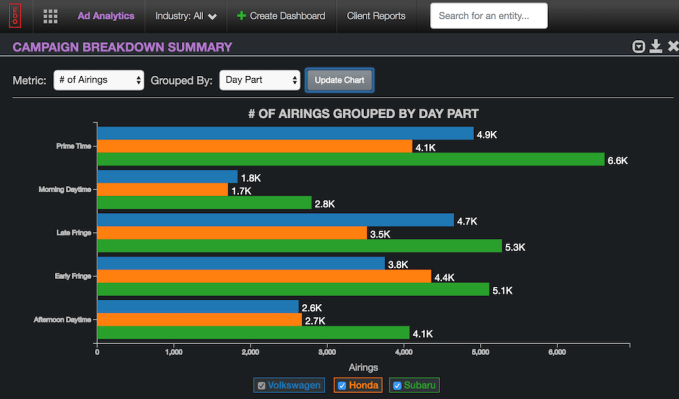Angela Strange, who joined the venture firm Andreessen Horowitz nearly four years ago and has been quietly working alongside general partner Alex Rampell on a wide variety of fintech deals, has herself been promoted to general partner.
The promotion is interesting on a few levels, starting with what may be the most obvious development to outsiders: Strange is now the third person who has been named general partner at the nine-year-old outfit over the last three months. Notably, she is the third woman to be named general partner since the firm announced its first female general partner in June.
Andreessen Horowitz now has 13 general partners altogether.
For those wanting to see more diversity at the country’s top venture firms, the firm’s moves are a welcome development. They are also a little surprising, particularly considering how delicate venture partnerships tend to be, and the typical pace of announcing general partners, which is rarely ever monthly, even at the biggest firms in the world. (In fairness, Andreessen Horowitz isn’t exactly known for caring much about tradition.)
Strange is also just the second general partner at Andreessen Horowitz (also known as a16z) who has been promoted from within, preceded only by Connie Chan, whose promotion to general partner we reported last month. Why that matters: a16z has historically had an express policy “not to promote internally,” as explained to us last month by general partner Jeff Jordan, who joined in 2011 after serving for years as the president and CEO of OpenTable. That policy had become antiquated over time, as a16z has grown and the operating functions that support its portfolio companies have matured, he said.
That shift in thinking helped enabled Strange’s quick rise within the firm, where, as Rampell outlined in a call yesterday, she has won both the admiration of her colleagues and established a rapport with many of the firm’s portfolio companies, some of which she has been serving as a board observer. (With her promotion, Strange will now begin taking board seats.)
The firm’s broadening bench of general partners could also tie to fundraising. Notably, a16z hasn’t announced a new flagship fund since 2016, and most firms roll out new funds every two to three years, so you know something is coming in the not-too-distant future. It’s also possible that a16z has something more focused in mind.
Consider the firm’s first female general partner, Katie Haun, who spent more than a decade as a federal prosecutor with the U.S. Department of Justice, and well as worked as the DOJ’s first-ever coordinator for digital assets. Haun’s new role with a16z was announced in June when the firm closed its first “crypto” fund, a $300 million vehicle that she is now actively investing alongside general partner Chris Dixon, who joined the firm as its seventh partner back in late 2012. It isn’t so hard to envision a separate effort similarly spearheaded by Strange and Rampell, particularly in light of a new report in Axios that a16z is moving away from raising enormous flagship funds and instead toward sector-specific funds, including its two bio funds. (Asked yesterday, the firm declined to comment on whether Axios’s report was accurate or if other, targeted funds might be in the works.)
Either way, the fintech portfolio that Rampell and Strange have been piecing together stands out. Among a16z’s many related bets to date are the so-called unicorn companies Robinhood, Stripe, and Transferwise. The firm has also placed numerous bets on startups that seem to be innovating in their respective fields, including Point, a three-year-old startup that lends money to people and receives partial ownership of their homes in return; OpenDoor, a five-year-old service that will make an offer on a homeowner’s house sight unseen; and OpenInvest, a three-year-old asset management startup with a social impact bent.
Strange — a Stanford MBA and serious marathoner who earlier spent four years as a product manager at Google, as well as worked earlier in VC as a senior associate partner at a Bay Area firm — appears to have more up her sleeve, too.
In conversation yesterday, she told us while the firm remains interested in lending startups (“there are a lot of new creative models that can be applied”) and real estate as an asset class, a growing area of interest for both her and Rampell is so-called insurtech. “It’s very much in its infancy,” said Strange, noting that “one out of 10 companies in the S&P 500 is a insurance company, yet there are no new entrants to that group.”
Thanks to data, that will change soon, in her view. “Data to better underwrite and data to allow you to find and attract customers in a more efficient way . . .” it’s coming, she suggested. And no matter the fund from which she and Rampell are investing, a16z will have its checkbook ready.
from TechCrunch https://ift.tt/2C2sWUg












No comments:
Post a Comment